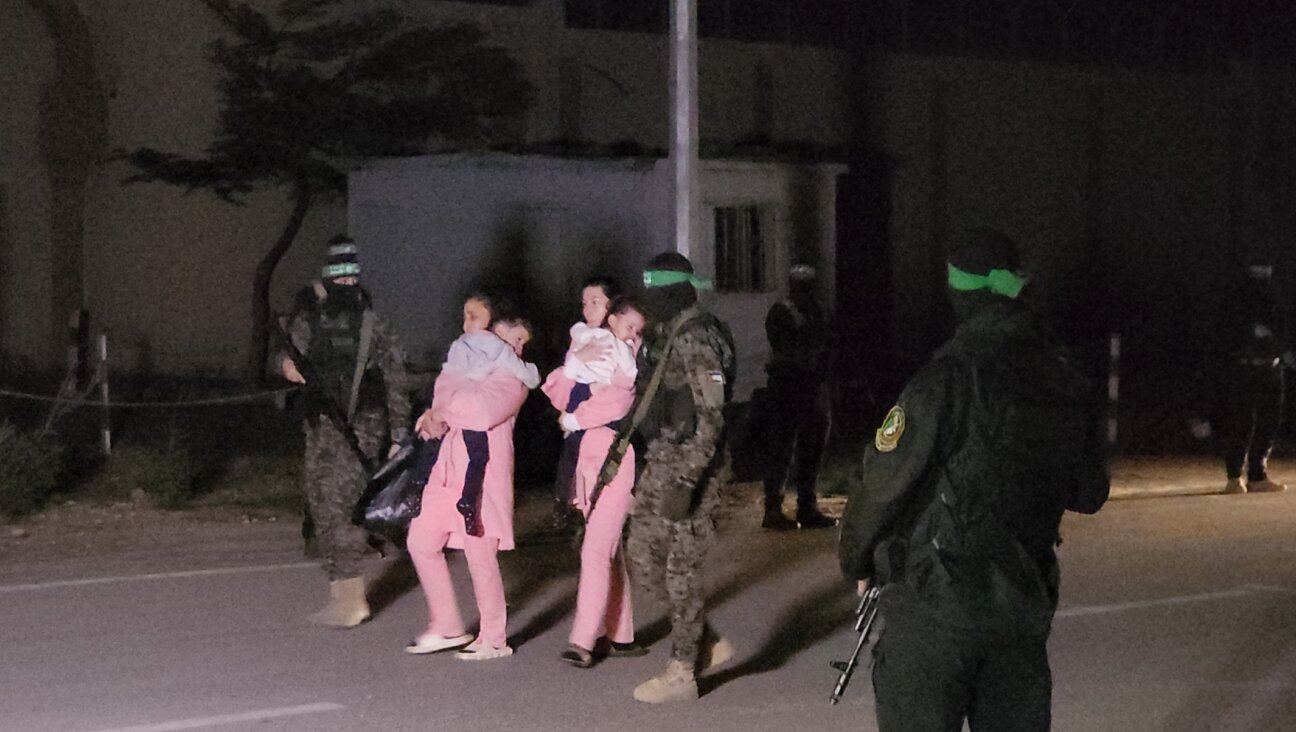Dutch Masterpiece Stolen by Nazis Expected To Fetch $2M at Auction

Looted: Gerrit van Honthorst?s ?The Duet? was confiscated by the Nazis from Jewish art collector Bruno Spiro
A 17th century Dutch masterpiece that once graced the collections of Catherine the Great’s art adviser and Russia’s Hermitage Museum before being seized by the Nazis could fetch more than $2 million at auction, Christie’s said on Friday.
Gerrit van Honthorst’s “The Duet” was confiscated by the Nazis from Jewish art collector Bruno Spiro and sold in 1969 to the Montreal Museum of Fine Arts, which returned it to Spiro’s heirs last month. It will be sold on June 5 at Christie’s Old Master paintings sale.
Executed in 1624 at the height of Honthorst’s career, the painting is among the finest examples of the kind of nocturnal revelry for which the Dutch artist is celebrated, according to Christie’s.
The work depicts a theatrically clad man and woman standing together over an open book, singing by candlelight. The woman’s exposed breast and revealing garb, as well as the Utrecht setting, suggest that she is a courtesan and the man her client, Christie’s said.
“This is a painting which has everything,” said Nicholas Hall, Christie’s co-chairman of Old Masters and 19th century art.
“It is a beautiful composition. It is by a major artist at the peak of his career. It is in pristine condition and coming from the collections of Count Alexander Stroganov and then the Hermitage it has a superb provenance,” said Hall.
“The Duet” belonged to the collection of Count Alexander Stroganov of St. Petersburg during the 19th century. He was Catherine the Great’s art adviser.
The picture passed by descent through the family and was eventually housed at the Hermitage before being nationalized following the Russian Revolution. The Soviet regime sold the work in 1931 at auction in Lepke, Berlin, and Spiro bought it shortly after.
A message from our Publisher & CEO Rachel Fishman Feddersen

I hope you appreciated this article. Before you go, I’d like to ask you to please support the Forward’s award-winning, nonprofit journalism so that we can be prepared for whatever news 2025 brings.
At a time when other newsrooms are closing or cutting back, the Forward has removed its paywall and invested additional resources to report on the ground from Israel and around the U.S. on the impact of the war, rising antisemitism and polarized discourse.
Readers like you make it all possible. Support our work by becoming a Forward Member and connect with our journalism and your community.
— Rachel Fishman Feddersen, Publisher and CEO























